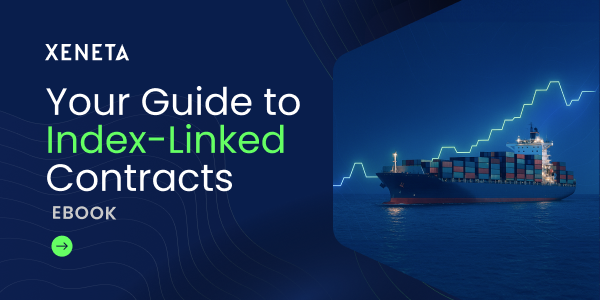Good supplier relationships are without a doubt vital if a business wants to control costs and have a healthy supply chain. As far as shipping and freight are concerned, BCOs (Beneficial Cargo Owners) are the customers who directly or indirectly, have to work, collaborate and manage business relationships with several suppliers. These suppliers may be VOCCs (Vessel Operating Cargo Carriers - or in simple terms, Carriers), OTIs (Ocean Transport Intermediaries like NVOCCs or Freight Forwarders), Haulers, Warehouses, Depots, etc. To keep their supply chain functioning as expected, for a BCO, fostering a healthy relationship as a company with their supplier partners is a must which in turn provides some substantial long-term benefits that work to the advantage of all parties.
Let’s see what we can learn from some rather large companies in this regard:
“Ford, General Motors, FCA US and Nissan collectively would have earned $2 billion more in operating profit had their supplier relations improved as much as Toyota’s and Honda’s did during the year,” - John Henke, Ph.D. president and CEO of Planning Perspectives INC.
“Toyota helped us dramatically improve our production system. We started by making one component, and as we improved, [Toyota] rewarded us with orders for more components. Toyota is our best customer.” —Senior executive, supplier to Ford, GM, Chrysler, and Toyota, July 2001
“Brands that think they can continue to squeeze their suppliers with impunity may get a nasty shock when what they are doing comes to the attention of their consumers.” - John Allan, FSB national chairman.
While there are typically some quick, albeit short-lived, gains to be had from bullying a supplier, the end result is usually the same. Costs will begin to increase; quality will start to suffer. Many times suppliers are forced out of business simply because they couldn’t make ends meet with the terms set by the companies that were purchasing their goods or services.

Long-Term Effects Are Detrimental
While short-term gains from pushing suppliers around might give companies more capital to play with, the long-term effects are significantly more detrimental. The practice of extending payment terms, for example, would give a company more on-hand capital at the expense of making their suppliers wait to be paid. In the case of Procter and Gamble, their suppliers have to wait 75 days to receive payment which has added approximately $1billion to P&G’s cash flow.
As Dr. Henke stated above, Ford, General Motors, Nissan, and FCA US all would have collectively generated an additional $2 billion in profit had they had a better level of cooperation with their suppliers and that was in the span of only a year. In long-term vendor contracts, many companies end up leaving money on the table simply by not treating their suppliers right.
Of course, it’s not just the automotive industry that has issues with suppliers that aren’t being treated right. Just In Time deliveries are very prevalent and common also in the retail sector and many carriers are tasked with delivering the cargo at the right time. Walmart and Kroger have some very stringent standards when it comes to their suppliers and they levy some hefty penalties for deliveries that aren’t on time. Not just late deliveries, but even deliveries that arrive early can be subject to penalties.
But at the other end of the spectrum, suppliers also need to have some reciprocity in terms of penalties. Just as late deliveries affect the customer, suppliers are also affected due to customers reneging on their booking volumes.
For example, no-shows or late cancellation of containers has been a bane for many carriers as in many cases they are unable to replace the bookings lost at the last minute. Carriers have been trying for several years to charge penalties for late cancellations; some have succeeded.
Nonetheless, it is about business and continuing a long-lasting relationship. For many large shippers that have have years of relationship with a certain supplier, cooperation and honor comes first. We noticed this during last year’s export from Europe to Asia space and rates challenge, where many of our customers told us that regardless of the chaos they still got the rate and equipment they normally received from their long-term supplier and that in the end, it all worked out. They credited this to the solid cooperation they had with their supplier.

Advantages to Building a Strong Supplier Relationship
Building good business relationships means that partners are more willing to cooperate or even go above and beyond what is typically expected. A study conducted by Planning Perspectives Inc. (PPI), which is an independent automaker-supplier consultancy firm based out of the U.S. mentions some of the advantages that can be gained by building strong supplier relationships in the automotive industry.
Key highlights were
- OEM suppliers are more willing to invest in new technology which means an overall better product for the auto-makers.
- Suppliers are more willing to support the company beyond the terms of their contract.
- Such support improves communication and suppliers tend to be more honest with their partner companies who treat them well.
- Last but not least, they’re more willing to give a price concession to the OEM which means more money saved in the long run.
We can draw comparisons here with the shipping industry as well and how the industry suppliers such as carriers and OTIs can build relationships that last.
Carriers have been investing in technology to improve their interaction with their customers not just for their benefit, but more for the customer’s ease of business as well. Through digital innovations, customers are able to do freight benchmarking, make booking, track and monitor their shipments online from their desks as almost all carriers these days have online booking portals.
BCOs who are aggressive with their suppliers in terms of rates or other operational demands may get less preference with their suppliers than those BCOs who know how to negotiate freight rates and conditions.
For those companies who aren’t willing to play nicely with their suppliers, the opposite is often true. Suppliers who get bullied by their partner companies are more likely to pay less attention to the details, provide a lower quality service and offer smaller price concessions. Additionally, should the supplier develop new technology or better implementation of business practices, they aren’t as likely to share with a company that doesn’t treat them well.

How to Build a Better Partnership
Working with a supplier should never be a “once and done” relationship. As the PPI study points out, the key to building a better business is to start by building better relationships. The key to a successful and long-lasting supplier relationship is that both parties need to walk away happy at the end of the day. Doing that means that both companies end up being more profitable and successful in the long run. But what steps can companies take to make sure they’re not only doing right by their supplier but also getting a good deal in return? Sometimes it’s a matter of careful negotiation. More often than not, however, it’s a matter of having access to the right information.
As the Harvard Business Review points out, Toyota and Honda a good model for any company to follow when it comes to building an outstanding relationship with their suppliers. Both companies take the time to truly understand their suppliers to know the vendors as well as they know themselves. Doing so creates a depth of understanding that is unmatched by any other company which, in turn, creates an unmatched level of partnership and cooperation between the companies and their vendors.
What’s more is that a well-working business partnership hinges on accurate, actionable, and transparent data. If we would like to translate this into the world of shipping, it’s important to understand that suppliers, like the companies buying their goods, all rely on freight transportation to get the product from the manufacturer to its final destination. Knowing what the current market shipping rates are is crucial to negotiating the best price, the length of a shipping contract and establishing long lasting business relationships.
As our industry moves towards the digital era, having access to the right data at the right time and anytime is beyond necessary. It’s critical. Doing that not only ensures a better relationship with suppliers, but it helps to keep your supply chain moving in the right direction.
.png)



-1.jpg)


.avif)
